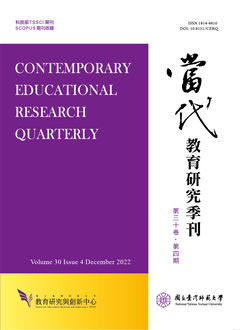

本文旨在比較分析社會公義相關理論基礎、資源分配與尊重差異之政治策略,並探討其在教育機會均等上的意義,據以提出邁向公義社會之教育構想。第一部分首先分析正義的形上學基礎與社會資源分配的合理性基礎。J.Rawls和J. Habermas將正義原則歸諸理性論證與協商所得的公平規範;I. M.Young則訴諸社會壓迫與宰制結構之解除;A. Sen則強調各個個體均有能力追求有價值的生活。其次,分析Rawls的差異原則、Young的差異政治,以及Sen能力差異的三個主軸論述,據以說明教育機會均等不單純是資源的分配公平,更是對各個不同族群獨特性的尊重與認肯(recognition)。第三部分則根據前兩項分析的結果評論Coleman報告書、OECD及European Council教育機會均等報告書及我國相關的教育機會均等政策。最後,本文提出一個實現社會公義的教育構想。
<div> This paper attempts to offer a critical analysis of various theories of justice and their implications for educational equity with a view to propose a fair educational system facilitating the actualization of an ideal just society. First of all, metaphysical and sociological foundations of justice are discussed. The focus of this paper is specifically on the analysis of J. Rawls’ theory of justice, Young’s politics of difference and Sen’s capability approach to social justice. The second part of this paper moves to the study of “politics of difference” and “politics of recognition” based on Rawls’, Young’s and Sen’s theories of social equity and justice. Based on the results of foregoing analysis on social justice theories, this paper gives critical comments on the reports and policy documents of Coleman, the European Commission, the OECD and the Ministry of Education in Taiwan. The paper concludes with a recommendation for designing a fair and inclusive educational system conducive to the fulfillment of social justice.</div>

本著作係採用創用 CC 姓名標示-非商業性 3.0 台灣 授權條款授權.
本刊國立台灣師範大學教育研究與創新中心
106台北市和平東路一段162號 | 電話: 02-7749-3670 | E-mail: cerecerq@gmail.com
教創中心 | 師大 | 電子報 | 線上投審系統
本刊由國家科學及技術委員會人文社會科學研究中心補助經費
© 2014 CERI-NTNU
